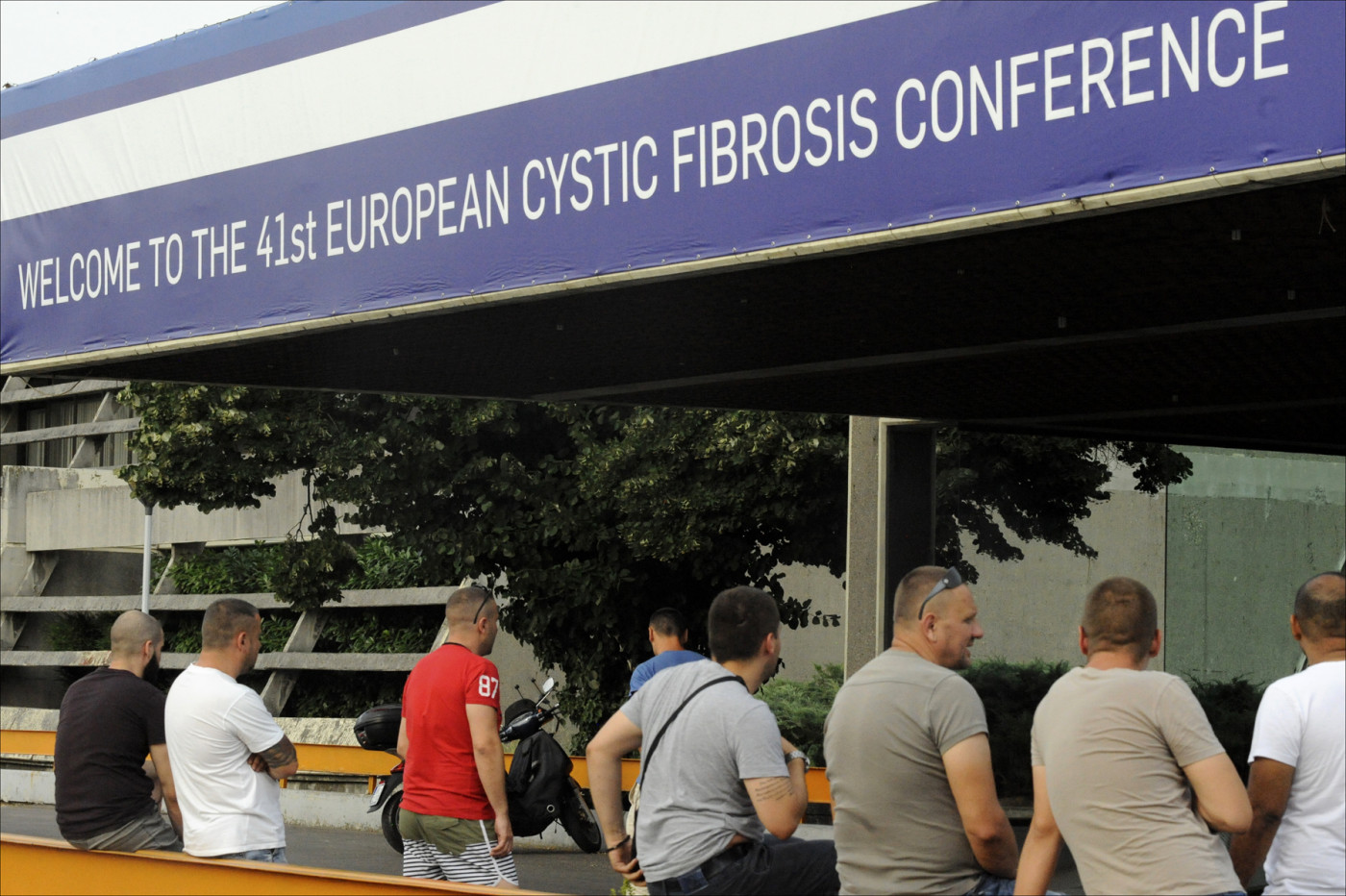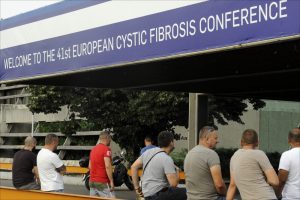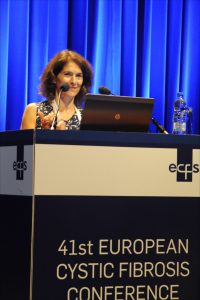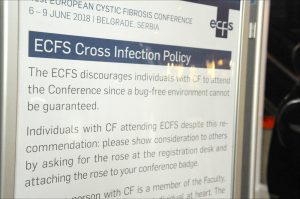#ECFS2018 – European Cystic Fibrosis Society Wraps Up 2018 Meeting in Serbia

Sava Centar in Belgrade, Serbia, hosts the 2018 ECFS conference. (Photos by Larry Luxner)
Europe’s largest annual gathering of cystic fibrosis (CF) experts ended June 9, capping four days of speeches, workshops, and poster presentations that attracted 1,832 participants from 56 countries.
The largest contingents at the 41st European Cystic Fibrosis Conference, held in Belgrade, Serbia, came from the United Kingdom (304) and Serbia itself (138); followed by France (131), the United States (122), Germany (113), Italy (106), and Belgium (93).
That’s according to the European Cystic Fibrosis Society (ECFS), which organized the event. French pulmonologist Isabelle Fajac, MD, PhD, took over the society’s presidency from her predecessor, Kris De Boeck of Belgium.
The conference featured 30 symposia, 20 workshops, six ePoster sessions, and dozens of specialized meetings on an array of CF-related topics including nutrition, fertility, aging, mental health, and exercise.
Improving care for Serbs with CF
The event itself took place in the aging Sava Centar, a communist-era building constructed in 1977 by Yugoslavia’s longtime dictator, Josip Broz Tito. Its inadequate air-conditioning and deteriorating façade are emblematic of the challenges facing Serbs today — particularly those with rare diseases like CF.
“The tradition of caring for CF patients in Serbia goes back to the late 1960s. However, the continuity of CF services development was interrupted by unfortunate historical events in the ‘90s,” Dragan Djurovic, president of CF Serbia, wrote in a welcome letter to meeting participants.
Djurovic added that United Nations’ sanctions imposed against Serbia at the height of the Balkan ethnic wars “left patients without elementary medications,” and that as a consequence, “substantially lower BMI [body mass index], FEV [a measure of lung function], and a very high colonization rate with Pseudomonas aeruginosa were noted in adolescents at the beginning of the new millennium.”
Serbia still lacks a formal CF treatment center, even though its population of adults with CF is expected to rise by 168 percent between now and 2025.
“I believe that choosing Belgrade for this conference was the right decision,” the event’s organizer, Predrag Minic, told his audience. “For many people in Serbia, this was their first chance to attend a big international meeting. I saw how passionate they were in acquiring new knowledge and contacts. Their education will certainly improve the care of CF patients in this part of Europe.”
ECFS Patient Registry up to 31 countries
Fajac noted that the ECFS Patient Registry has now grown to 44,719 patients from 31 countries — with new participation from non-EU member states such as Albania, Armenia, Bosnia & Herzegovina, and Georgia.
“This patient registry has been qualified by the EMA [European Medicines Agency] as an appropriate platform for the collection of CF data for PASS [post-authorization safety studies] and PAES [post-authorization efficacy studies],” Fajac said. “As you know, clinical trials are based on only few numbers of patients, and we need evidence in real life. These qualifications by the EMA will help us to have this information on new drugs in real life.”
She added that the ECFS Clinical Trials Network (ECFS-CTN) will see a new wave of expansion — the third since the network was launched in 2008 — from 2018 to 2020. The network currently provides access to 43 large CF centers in 15 European countries.
Stuart Elborn, MD, of Royal Brompton Hospital and Imperial College London, noted that in the 1940s, babies born with CF usually didn’t live longer than a year. Thanks to effective therapies and treatments, however, life expectancy has improved dramatically.
“If you were born with CF in 1990, your median survival would be around 40 years,” Elborn said. “Some thought we’d never see people living into their 40s, but we really have a different demographic today. The median age of a CF patient is now 20, and more than 60 percent are over the age of 16. Young people and adults are now contributing to society and doing things they might have never done otherwise.”
For example, he said, 71 British women with CF had babies in 2016, and 48 British men with CF became fathers that year.
Susan Madge wins 2018 ECFS Award
The ECFS, which is headquartered in Denmark, also bestowed its 2018 ECFS Award on Susan Madge, PhD, a British CF specialist who began her 30-year career at London’s Great Ormond Street Hospital and has been with Royal Brompton Hospital since 2002.
Madge launched the International Nurse Specialist Group in 1998 (now the ECFS Nursing SIG), and has worked for years to raise the profile of nursing and allied health professionals within the CF community. She is the only non-medical doctor/scientist to have served on the ECFS board, having been elected to four-year terms in 2006 and 2010.
“My work has been around improving patient care, giving patients a voice and empowering multidisciplinary teams to contribute to CF,” Madge told Cystic Fibrosis News Today following the award ceremony. “I try to make people realize that those with CF and their families are part of the team and should be involved in decision-making. In the U.K., we manage that quite well. We now have people with CF and parents represented on most of our committees.”
Madge said inadequate access to expensive CF therapies is a major issue, adding “there aren’t enough adult CF centers in all of Europe because the adult population in CF is growing exponentially, and the resources are not enough to keep up.”
The ECFS has scheduled its 42nd European Cystic Fibrosis Conference for June 5-8, 2019, in Liverpool, England.










